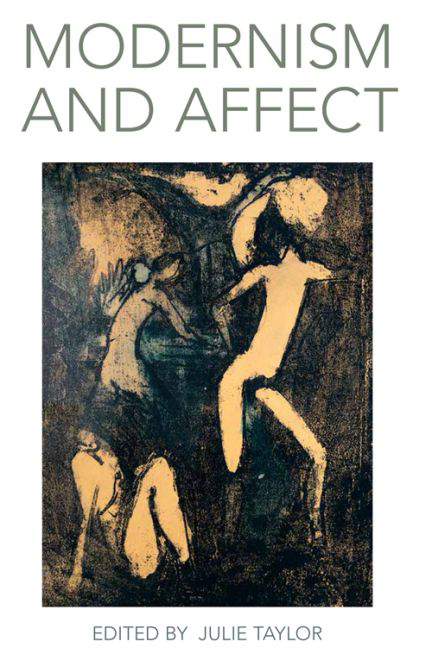Book contents
- Frontmatter
- Contents
- List of Illustrations
- Acknowledgements
- Notes on Contributors
- Introduction: Modernism and Affect
- 1 Mind, Body and Embarrassment in Henry James's The Awkward Age
- 2 The Trauma of Form: Death Drive as Affect in À la recherche du temps perdu
- 3 Logic of the Heart: Affective Ethical Valuing in T. E. Hulme and Max Scheler
- 4 The Line that Binds: Climbing Narratives, Ropework and Epistolary Practice
- 5 The Amplification of Affect: Tension, Intensity and Form in Modern Dance
- 6 Love and the Art Object
- 7 Animating Cane: Race, Affect, History and Jean Toomer
- 8 Fear and Precarious Life after Political Representation in Baudelaire
- 9 Bloom-Space of Theory: The Pleasure and the Bliss of Gerty MacDowell
- 10 From Odysseus to Rotpeter: Adorno and Kafka, Mimicry and Happiness
- 11 Making Happy, Happy-making: The Eameses and Communication by Design
- Index
8 - Fear and Precarious Life after Political Representation in Baudelaire
Published online by Cambridge University Press: 15 September 2017
- Frontmatter
- Contents
- List of Illustrations
- Acknowledgements
- Notes on Contributors
- Introduction: Modernism and Affect
- 1 Mind, Body and Embarrassment in Henry James's The Awkward Age
- 2 The Trauma of Form: Death Drive as Affect in À la recherche du temps perdu
- 3 Logic of the Heart: Affective Ethical Valuing in T. E. Hulme and Max Scheler
- 4 The Line that Binds: Climbing Narratives, Ropework and Epistolary Practice
- 5 The Amplification of Affect: Tension, Intensity and Form in Modern Dance
- 6 Love and the Art Object
- 7 Animating Cane: Race, Affect, History and Jean Toomer
- 8 Fear and Precarious Life after Political Representation in Baudelaire
- 9 Bloom-Space of Theory: The Pleasure and the Bliss of Gerty MacDowell
- 10 From Odysseus to Rotpeter: Adorno and Kafka, Mimicry and Happiness
- 11 Making Happy, Happy-making: The Eameses and Communication by Design
- Index
Summary
Where better to begin a consideration of fear and the modern politics of representation than with the self-identified ‘shock’ Charles Baudelaire experienced sometime between ‘1846 and ‘47’ when he first discovered ‘a few fragments by Edgar Poe’? (1986: 148). To underscore the importance of his discovery, Baudelaire's letter divides his reaction to Poe's work into two categories. On an aesthetic level, the jarring power of Poe's fragmentary narrative exposition enabled a new mode of representation to reveal shocking moments of emotional uncertainty. The ‘poems and short stories’ Baudelaire happened upon in Paris were organised ‘in a vague, confused, disorderly way’, enacting a metaphorics of correspondences ‘that Poe had been able to bring together to perfection’ to expose a defensive struggle for self-expression and emotional coherence in the face of a fleeting and contingent view of everyday modern life (ibid.). But there is a second and unapologetically political response worthy of discussion here. It was Poe's dark vision of a democratic and progressive history that galvanised Baudelaire's commitments to develop one of the most unsettling features in his poetry. A mob fear haunts Les Fleurs du mal. And although my critical examination will resist the reductive assertion that Baudelaire's complicated politics were categorically anti-democratic, his fear of the court of public opinion as the immanent ordering force in modern life does offer a remarkably lucid, at times shockingly contentious, point of re-entry into his work. The issue can be rephrased thus: it was precisely in Poe's terrifying portrayals of the escalating conflict between the will of the supposedly free individual and the mass public that resonated with Baudelaire's concerns about the widening gap between individual liberty and democratic rule. A fear of the unchecked power of the multitude was therefore difficult for Baudelaire to endure but more intolerable to surrender.
Baudelaire recognised non-rational impulses were guiding the political motivations of an emerging mass public.
- Type
- Chapter
- Information
- Modernism and Affect , pp. 148 - 166Publisher: Edinburgh University PressPrint publication year: 2015



